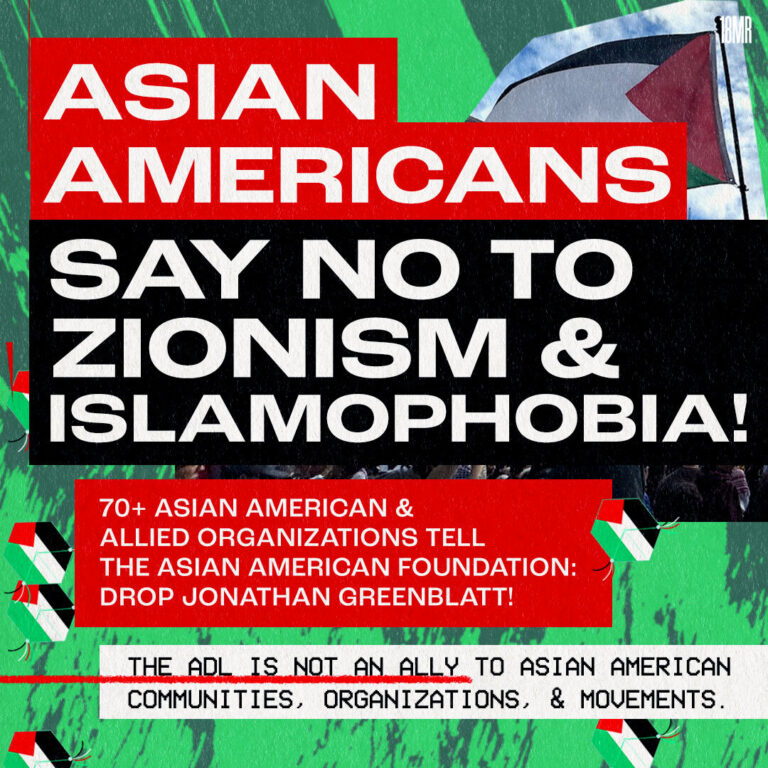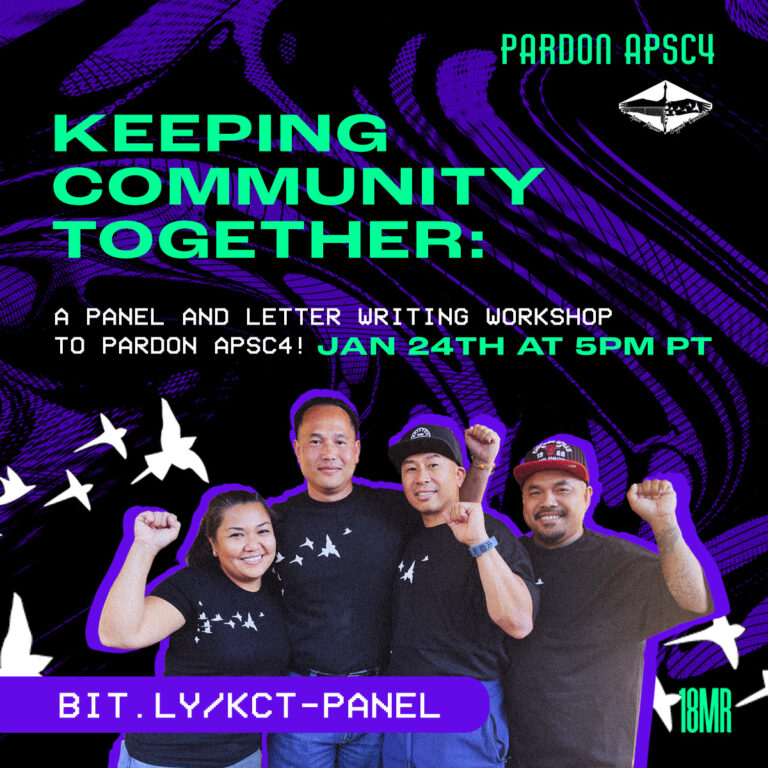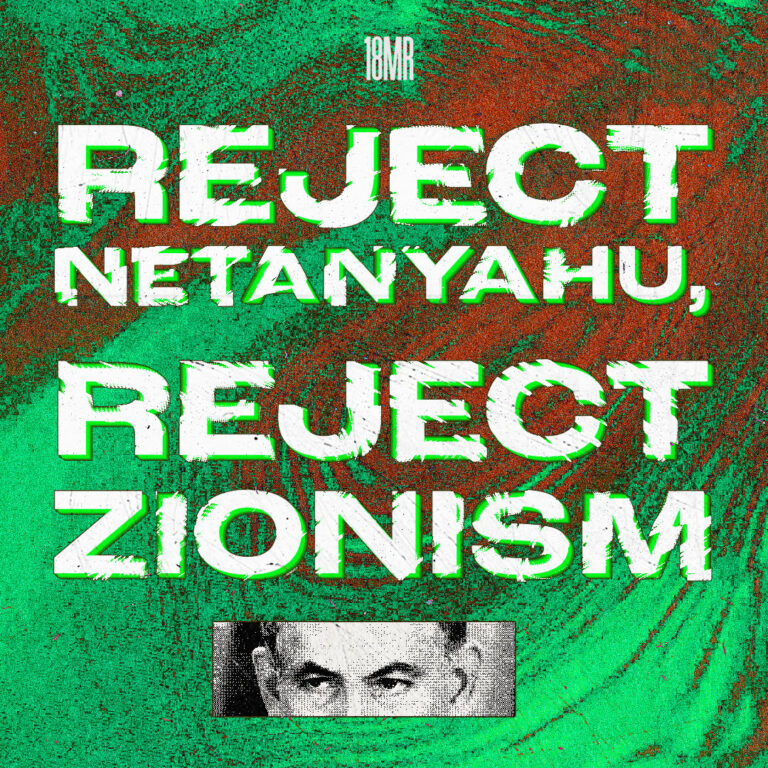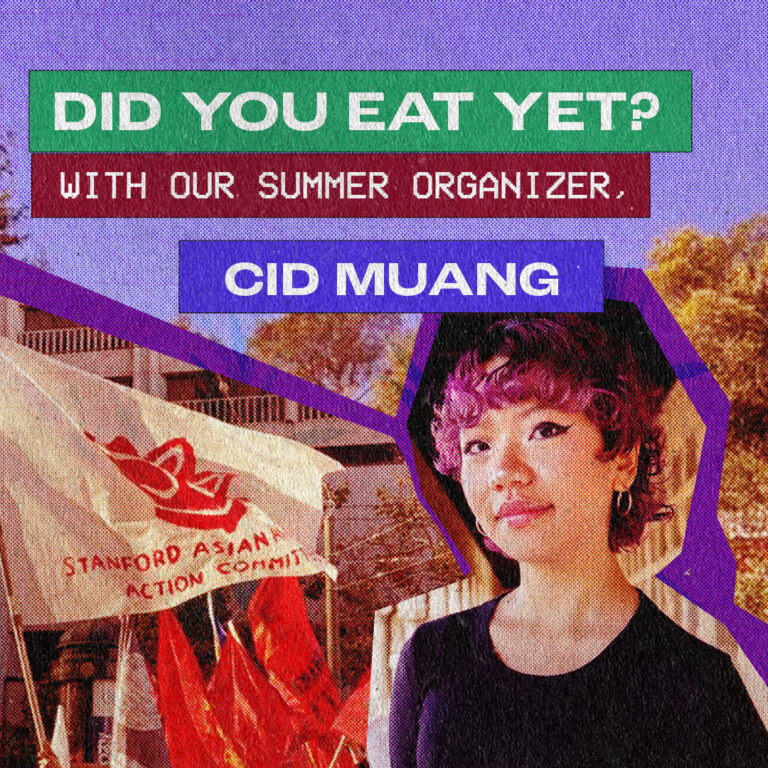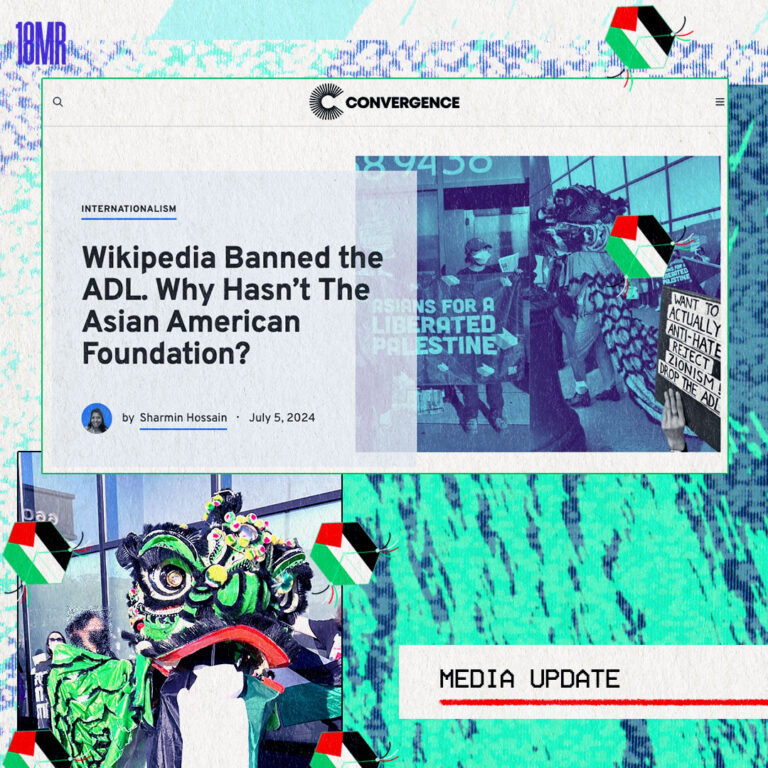sumi: You are a gardener, artist, medium, and ceremonialist. As a young traditional healing practitioner, your work is a continuation of your indigenous lineage– the Bontoc and Ibaloi tribes (the Igorot) of the Philippines. What does living out your purpose and traditional healing practices look like in Oakland, CA (your current home)?
Angela: Aside from when I’m with students or clients, I spend most of my time interacting with the plants, the earth, and my ancestors. I’m really talking to them and returning back to my ancestors’ ways of animism.
I spend my time cultivating my relationship back to our earth, because we have broken lines. This isn’t this glamorous thing. I’m in a big process of decolonization and a big part of my spirituality is decolonization. What that looks like is diving deep into ancestral work. I spend a lot of time sitting at my altar and working there. Making medicine and being in the garden. This requires a lot of spaciousness – to slow down and connect with the earth.
Unfortunately, this process of rematriation sometimes feels like a privilege to me because most of my friends, family, and the public are very much in the grind. When I’m in my home and garden space, I feel like I’m just playing. Which is beautiful to me, but if you contrast it with most of the world, it feels like a privilege. But that’s the only way at this point.
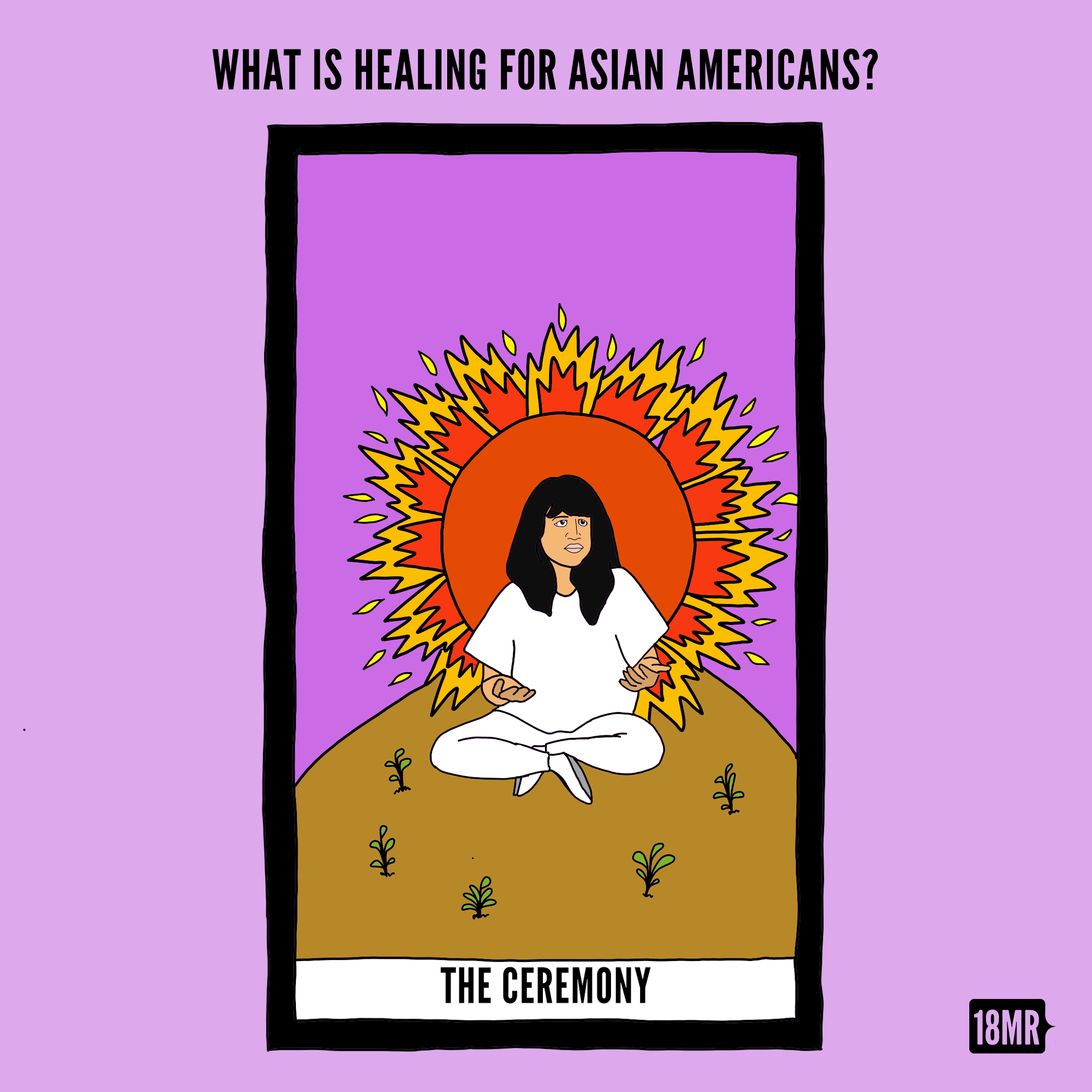
sumi: What is a medium?
Angela: A translator of languages, frequencies, vibrations, colors. An empath, but in a way that we are able to control that sensitivity and use it to support clarity and healing for others. A deep connection with the earth and the elements. An avatar, being in tune so deeply and authentically that you’re able to work with the elements around you.
sumi: The dominant Western worldview does a tremendous job of separating us [humans] from nature. Similarly, trusting your psychic visions in a culture which doesn’t honor your feelings and sensations as real information, is no small thing. How did you learn to trust your visions and the land?
Angela: That’s pretty much what it means to be Indigenous– to have full trust and deep connection with the earth. It’s our way of life.
I feel hopeful because we are in a time of decolonization. Our dominant culture doesn’t allow for us to trust in the earth and in things that are unseen. Religion, colonialism, internalized colonialism, and capitalism have all violently impressed upon us not to trust in our Mother, Our Earth. When you’re severed from the earth, you completely forget her. We’ve been in that great forgetting for a while now.
For me, I feel blessed that I was raised that way. Next to the earth, my mama was my first teacher and I learned to take care of the land from her. Nature is what should feel natural because it’s our inheritance and it’s our inherent-ness. As human beings, we have a long way to go with rebuilding that trust.
sumi:For folks who didn’t grow up with someone who taught us this value of trusting earth, or seeing the earth as our mother – where’s a place to start?
Angela: I think it’s both subtle and also a product of assimilation that people didn’t grow up with that direct connection. For the most part, it’s always been there.
The subtlety comes from establishing a relationship to nature, the same way you would establish a relationship with a new friend.
You pay attention, you make acknowledgements, you give them a gift, you listen to them, you respect them, you establish consent, you make a meal for them, you tell them you love them.
All of that is the same when you are working with the plants: you observe, you become quiet, you become still, you pay attention to the way they grow, you offer them water, you ask permission to take from them, you also greet them, and tell them you love them. The same reverence we give to our human loved ones is the same reverence I carry with the earth.
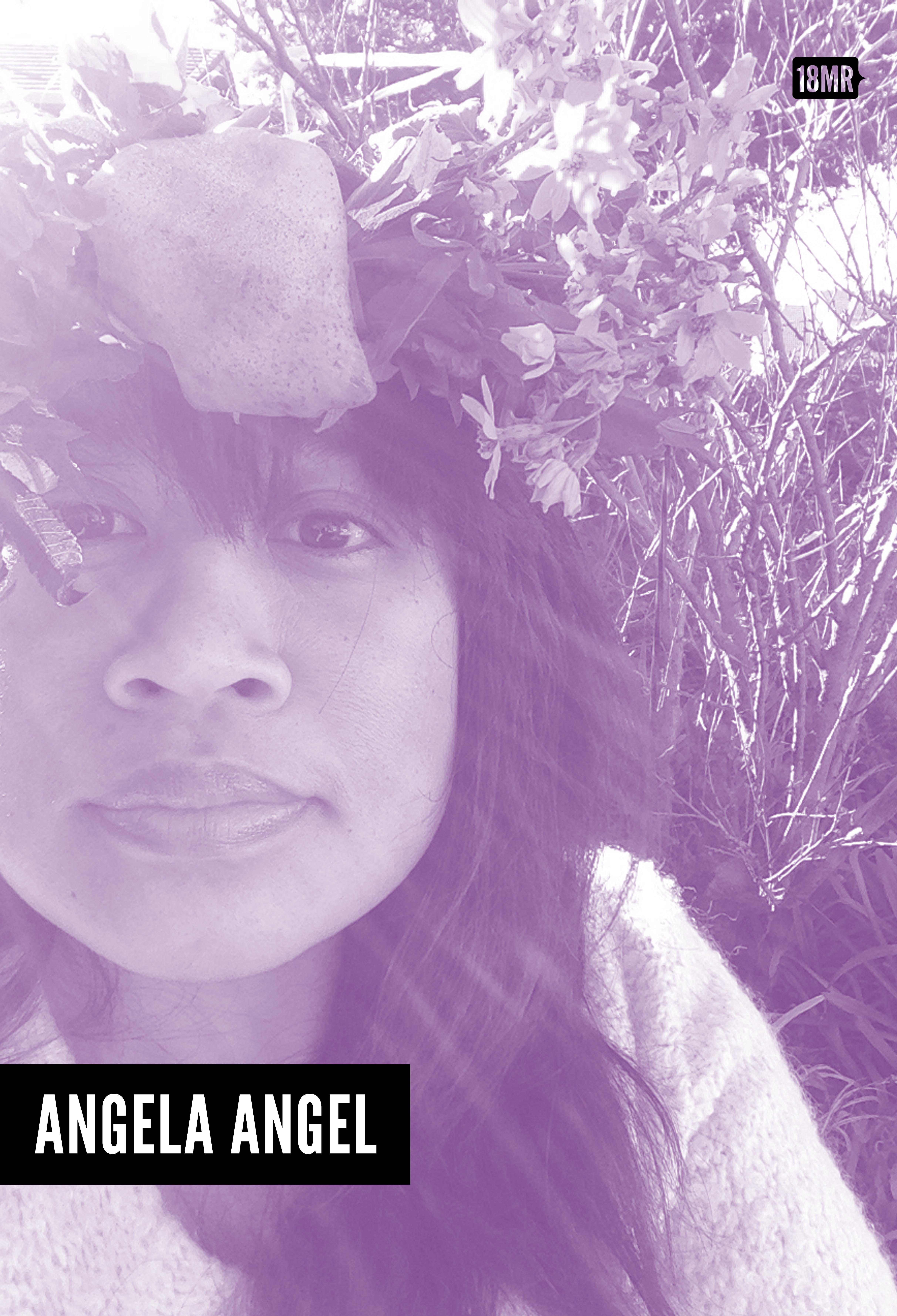
sumi: Healing historical and ancestral trauma is central to your work as a practitioner. Why is this so important? And are ancestors more than just our blood family?
Angela: Yes. We are connected to so much rich history that is within our blood lineage, but if you go further back, we are connected to so much more. We’re connected to the animals, the plants, and to what is known as the unseen. There’s multiple worlds that we’re connected to that I would consider our ancestors.
We’ve been on this planet as a peoples and as our lineages for a very long time. When people describe themselves as an old soul, I sometimes laugh at that. At this point, everybody is an old soul! If you look at it generationally and spiritually, we have our grandmothers that are being reborn into this planet. We’re very, very old. We’ve accumulated thousands of years of trauma and repeating history in a cyclical, destructive way.
Once you’ve gotten to a certain level of your healing work, you’ll hit a tension that either you need to confront, or it’s gonna continue as this pattern in different ways. That is ancestral work.
In order to change our world, we have to get into the deep inner work, coupled with all the other things which we may already be doing, like organizing and taking care of our daily needs. It’s vital to our systems, especially in our partnerships and families.
[Often] we get so enthusiastic and ready to change the world in this very external way. It’s what I would describe as hypermasculine. I definitely think this needs to continue happening and it has its role. But if we’re having all this turmoil in ourselves and families and we just keep running away from that – either because it’s too hard or we don’t wanna deal with it – that extends into the rest of our work. We can’t just change things from the outside in, we need to do it both ways.
sumi: What does ceremony mean to you?
Angela: I would describe my life as ceremony. That’s how our ancestors lived and continue to do so.
Ceremony is a lifestyle. Not like, “I’m gonna do yoga because it’s trending,” but a lifestyle where you have to walk in such a way where you are really in tune and paying attention to things.
It’s a mothering way of being. For me, ceremony could be as small as daily rituals like waking up in the morning and stretching, or it could be much more formal and intentional.
To talk about ceremony is to talk about why we even need it. It’s at a level where language feels very limiting. It’s a way of us mirroring the natural order of the universe. When we mirror that, we become in tune with the sacredness of all and the natural cycles of things.
Ritual is a way of continuously birthing yourself into existence. Specifically, rites of passage rituals are so important. We barely have that today, perhaps only in the form of weddings or giving birth.
In our ancestors’ time, people were initiated often. For example, when a child is stepping into a certain level of their maturity or when you’re becoming an elder. We honor different stages of life and death.
We used to have these rituals to understand our role as members of our community. What we’re seeing now is when we’re not formally initiated, we get initiated a different way. Either it becomes a disaster, we become ungrounded from it all, or we find our way. For example, when there’s a shocking death in the family. If people don’t honor it, if they don’t create a ceremony around it, the soul and the family becomes lost.
When we do ceremonies, we’re creating space for people to come into themselves and into the reality that their loved one has now graduated from life. We’ve lost a lot of that, or we have diluted versions of it which are based on pressures to look and be a certain way– like weddings.

sumi: What is the gift of an imperfect ancestor?
Angela: It means working with all the different lines within us. We have a history that is violent and full of terror and trauma and that exists within us.
We have ancestors that are our colonizers. But it is also a gift because we don’t want that to continue.
By doing ancestral work we’re able to see our imperfect ancestors through compassion, through their original innocence.
sumi: What do plants want us to know?
Angela: To learn their song.
This interview is part of “WHAT IS HEALING FOR ASIAN AMERICANS?” an 18MR pilot series exploring the healing possibilities for Asian America, in the face of American exceptionalism and the model minority myth.
To learn more about Angela’s work, visit: https://otherwaysofseeing.com/

